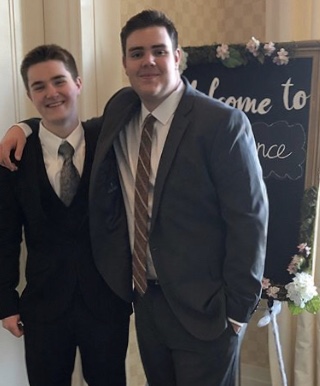Saving and investing important for young adults
Economics and financial management advice comes in handy in new year

January 1, 2018
All Virginia Beach City Public Schools require students to take Economics and Financial Management as a graduation requirement; however, students many times find themselves ill-prepared for adult financial responsibilities.
According to the U.S. Securities and Exchange Commission, “Don’t use a credit card unless you know you’ll have the money to pay the bill when it arrives.” Few to no investments will generate enough income to match a credit card debt; therefore, it is recommended to handle any and all large debts prior to investment. One economics teacher provides practical advise for students who begin to work in high school.
“Get in the habit of saving 20% of your income if you are working,” said economics teacher Charles Brown. “By the time you are 18, invest half in savings but keep enough to support yourself if you are unemployed for six months.”
Investing is placing money in shares or property in hopes of producing a profit.
“Historically, when you invest, you are likely to double your money in ten years,” said financial management teacher Nikki Wilcox.
According to the U.S. Securities and Exchange Commission, investors are more likely to lose money in investments as opposed to saving. An investor’s “principal” (the amount of money invested) is not federally insured, and it could be lost. However, to make a profit, it may be necessary to take small risks when you are younger.
“You have a lower risk when investing at a young age and a higher risk as you grow older,” said Brown.
Also, at a young age, students will find it may be easier to recuperate money through time, but at an older age, investors face a larger risk, taking longer periods of time to recuperate lost investments. According to the research found, when investing, diversify. Invest in different things. Therefore, if one investment loses money, the investor has protection from a substantial loss.


